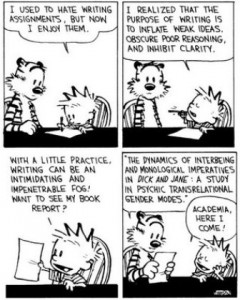Week 1 – Chapter One Blog Post
The chapter one reading for this course highlights the academic language skills of diverse learners in the twenty-first century classroom in connection with their family life and home. Furthermore, this reading discusses the problem teachers overlooking the skills and strengths of diverse learners and devaluing their academic language skills.
It was very interesting reading the section titled “Valuing and challenging diverse learners.” Zwiers explains that there is a preference for academic language and literacy practices in school and work settings. Why does this preference exist? Zwiers says that it is a “social reality that dominant socioeconomic and political groups strongly influence what is valued in a society” (Zwiers 11). Many students from “non-mainstream” backgrounds are not exposed to the same language and literacy experiences at home that students from “mainstream” backgrounds will have been exposed to at home. In general, teachers expect students from all backgrounds to use the same style of academic writing that a middle or upper class student might use. Although students from diverse backgrounds may not produce writing that looks “mainstream,” the content of their work may contain valuable thoughts and ideas that are useful for classroom discussion and learning. I think that teachers should be fostering the language skills of diverse learners in order to give them the opportunity to speak out and share their ideas. Sometimes students from diverse backgrounds are not given the opportunity to communicate their thoughts and opinions at home. Therefore, school gives them the outlet needed to articulate these ideas and enhance these skills for future schooling and work.
Zwiers also referred to this concept of academic language preference in his chapter reflection questions as “language-ism” (Zwiers 17) and questioned if it was possible to say that it is more prevalent than racism. I thought that this was an interesting parallel. I think that language-ism could very well be more prevalent than racism. Teachers assess assignments on a daily basis with their personal biases in mind. If you do not fit the rubric for “mainstream” academic language, then your work is considered less worthy of a good grade. I think particularly in the English subject that teachers need to be extremely careful about the way they grade papers. It is important to focus on thoroughly examining the content of the work before judging the work based on general flow and presentation.
By:Erin Milne
